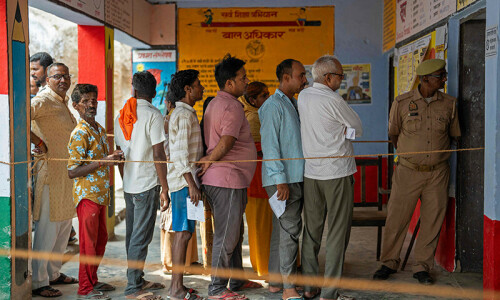Massive heatwaves across East Asia and the Pacific could place millions of children at risk, the United Nations warned on Thursday, calling for action to protect vulnerable people from the soaring temperatures.
Global monitors have warned that 2024 is shaping up to be the hottest year on record, marked by climate extremes and rising greenhouse gas emissions.
Data from the United Nations International Children’s Emergency Fund (Unicef) showed over 243 million children across the Pacific and East Asia were estimated to be affected by heatwaves, putting them at risk of heat-related illnesses and death.
Several countries in the region are currently smouldering in the summer heat, with temperatures nearing record levels as they regularly hit over 40 degrees Celsius. Local forecasters are predicting steeper rises in the coming weeks.
Some Philippine schools suspended in-person classes in April, with the state weather forecaster saying temperatures could reach a “danger” level of 42 or 43 degrees Celsius in parts of the country.
In Thailand, a temperature of 43.5C was recorded in the northern province of Mae Hong Son earlier this week — just a few degrees shy of the record 44.6C. Around 40 people die from heat-related illnesses annually, according to the Thai Ministry of Health.
In February, neighbouring Vietnam endured a monster heatwave in its southern “rice bowl” when temperatures reached up to 38C — an “abnormal” high for the period.
According to the Unicef report, children are more at risk than adults as they are less able to regulate their body temperature.
“Children are more vulnerable than adults to the effects of climate change, and excess heat is a potentially lethal threat to them,” said Debora Comini, Director of Unicef’s Regional Office for East Asia and the Pacific.
The report said that heatwaves and high humidity levels — commonly experienced in the region — can have a deadly effect as the heat will “hinder the body’s natural cooling mechanisms.”
“We must be on high alert this summer to protect children and vulnerable communities from worsening heatwaves and other climate shocks,” Comini said.
The UN projected that over two billion children are expected to be exposed to heatwaves by 2050.















































Dear visitor, the comments section is undergoing an overhaul and will return soon.